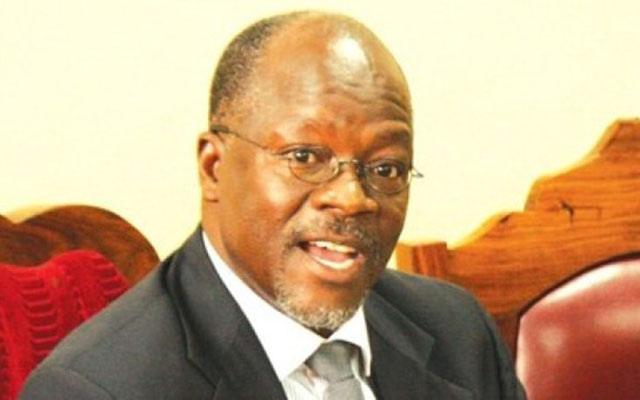The ‘cousin-brother’ syndrome, other peculiarities in Zimbabwe


Why are you always wearing headphones? Is it to take your own inner counsel or simply to avoid talking to others because you think you do not need them?
David Mungoshi Shelling The Nuts
The passing on of someone close to us is always a traumatic experience at the personal level. But the passing on of an important idea is perhaps a tragedy without measure, for the loss can never ever be recouped.
What’s lost is lost forever and those who pass on and go away with valuable skills and knowledge that no one else has are a special cause for bitter mourning.
This is probably the reason why heritage studies around the world are becoming ever more relevant and important.
Not so long ago (perhaps two or three years back from now), an old woman died on an island off the coast of India.
She was 102-years-old and was literally the very last of her ethnic group.
Nobody else but her spoke the language that only she could speak. The story of how all her “tribe” perished until she was the single piece of evidence left that once there had been a people that spoke as she did, is one that investigative journalists, historians, anthropologists and archaeologists may want to go into.
Many people take language for granted. That is a most unfortunate thing to happen. Language is at once the backdrop of and the vehicle of our culture: thoughts, philosophy, values, norms and so on.
When the old woman finally gave up the ghost and moved on, learned professors and other researchers who had been studying her language were left holding broken shells, so to speak. It was the end of the road for their project, literally!
The world may never know what we lost when we lost that old lady.
Who knows what secret knowledge she may have held all those years when nobody took notice of her? Who knows what remedies her people may have had for the many maladies that afflict our so-called modern world?
These are important things to talk about because in these days of big business and clandestine corporate activities you can never put anything past these greedy, grasping organisations. The world could be a better place without them.
In recent times there has been a sort of grudging acceptance of things like alternative medicine and homeopathy where treatment is by assisting the body to rediscover its own capabilities, resist disease and repair itself through proper nutrition and exercise. Processed foods in this kind of thinking become taboo.
There are many who will defend even with their lives the gains they have made over the centuries because to do anything different would be the same as taking their own lives; the lifestyles they pursue are all about novelty and loudness.
In this din the words and wisdom of herbalists and nutritionists like Dr Sebi, late of Honduras, are drowned and condemned because the pharmaceutical companies feel threatened. Consequently, people like Dr Sebi are eliminated, metaphorically or in real terms.
Quite often the really big people of our world become big rather too late for us to benefit. If you’re one of the lucky ones like the gifted Isambard Kingdom Brunel (1806) you excel in the field that your father was expert in although you do not really have the same kind of formal training that he had.
You use your imagination limitlessly to achieve what others may think impossible to achieve. Brunel’s bridge over the River Severn on the border between England and Wales is a great wonder. It is easy to stand there and be lost in perpetuity — forever.
In recognition of his engineering feat, a university is named after him in London. The Brunel University has taken sports science to breathless heights. World celebrities like Usain Bolt have trained at this institution whose indoor athletic facility is second to none.
Dr Sebi, by contrast, and perhaps because he was operating in a completely different area, has been a victim of prejudice and intrigue. Being African, Dr Sebi’s life and work has been the victim of rabid scepticism (unreasonable disbelief).
The humble herbalist pushed the perhaps revolutionary idea that the cause of disease or sickness in our bodies has nothing to do with pathogens (germs/bacteria and viruses). The culprit, according to him, was the substance known as ‘mucus’ (not necessarily as in what we blow out through our noses).
In his thinking, acid at uncontrolled levels is highly dangerous. So he designed and advocated the use of alkaline diets. Such diets eliminate mucus and by extension eliminate all diseases.
He concluded that there was a one-size-fits-all solution to all diseases. No disease was incurable! He said he could cure AIDS and diabetes plus a host of other life-threatening diseases and illnesses.
Those who are familiar with the work of this gentleman know that he was arrested and taken to court for practising medicine without a license and for claiming he could cure AIDS and so on.
Dr Sebi was freed by his country’s supreme court after he proved through seventy of his cured patients that he had indeed cured them. They were tested and seen to have been cured.
But we are talking about a black man here. One belonging to a race that is vilified and ridiculed and whose psyche has become so submerged that in many cases we have become carbon copies of others nations.
Burning Spear, the Jamaican super star reggae group fronted by the enigmatic Winston Rodney, sang the sad but true song called, “No one remembers Marcus Garvey”. Yes, no one remembers ‘the’ Marcus Garvey, a veritable back to Africa prophet.
That kind of fate is what the Western world would prefer for all prominent blacks. It is all done to buy time for their own people to arrive at the same point of knowledge and expertise. The Graham Bell issue is a case in point.
History records that it really was not him who first invented a telephone, if one can speak that way. He was just the first to have his design patented/ registered. That was thanks to the work of a young black man, Lewis Latimer, gifted in doing patent drawings and thus employed as a draftsman by the patent law firm that Alexander Graham Bell used.
Latimer contributed to Bell’s patent drawings and Bell’s design was first through the post. One wonders whether that was all that Lewis Latimer did since he became a very important inventor in his own right.
Let us learn to hold on to those things that are dear to us and let us learn to celebrate the achievements of our people. Let us appreciate them while they live. This applies even to personal relationships and to family.
Increasingly as we become more and more absorbed by Western values we begin to compromise our own systems and values, things like community and togetherness as well as our kinship systems.
The typical colonial master often asked of the black man on the factory floor: How many times does your father die? He did not understand that the word uncle for us had a completely different meaning from his.
But lo and behold, these many years later we hear of fathers being called uncles. Some of us grew up in families where brothers of our biological fathers were our fathers as well, and the same applied to the sisters of our mothers. They too were our mothers.
This system guaranteed what sociologists refer to as safety nets in which everyone could find refuge and support when times are hard. This meant that there was greater unity and cohesion than we are seeing now. The tendency these days is to create yawning gulfs between close family by using language and terms that encourage this terrible thing.
Whatever is the meaning of ‘cousin-brother’ and ‘cousin-sister’? People use these matter-of-factly these days without seeming to see that they are contributing to the death of family units.
In this careering the ultimate destination is the nuclear family, a typically English preference. The children of the brothers of my father are my brothers and sisters. It is not correct even to refer to them as my extended family.
And the children of the sisters of my mother are also my brothers and sisters. It is these things that can help consolidate peace and nationhood. Let us stop being in too much of a hurry to get nowhere and start engaging in proper greetings again.
Why do people ask people how they are before they have exchanged greetings with them? With time, we will look at some of these things in greater detail. Meanwhile, where are you hurrying to so frantically? Is it to avoid me?
And why are you always wearing headphones? Is it to take your own inner counsel or simply to avoid talking to others because you think you do not need them? Too much immersion can one day mean that nobody remembers Zimbabwe.
David Mungoshi is an applied linguist, social commentator and writer.









Comments